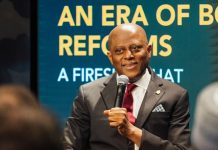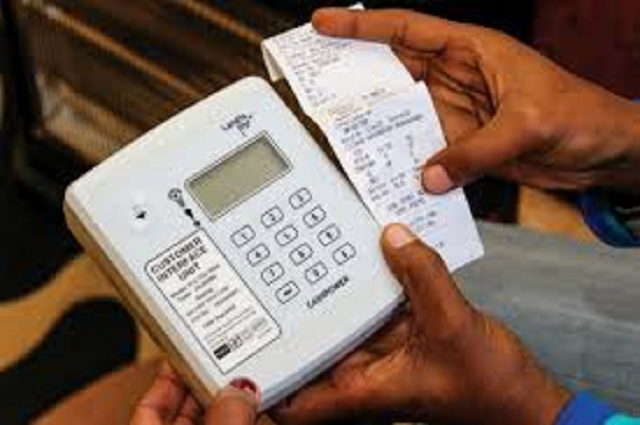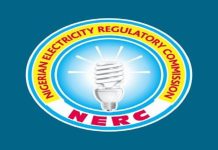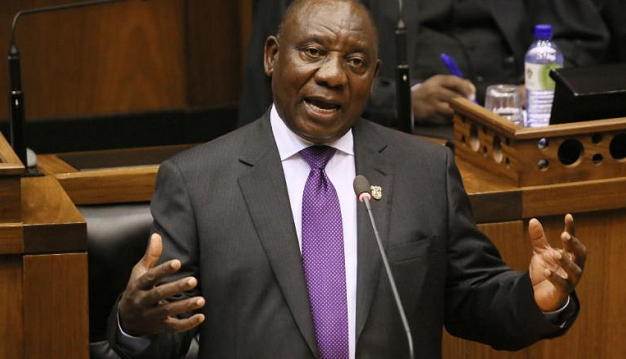For David, who lives in the Jakande Oke-Afa area of Lagos, the power supply has never been as impressive as it is now that he had his own prepaid meter. In fact, “sometimes I beg them to take the light,” he says.
Prior to receiving his prepaid meter, David said that power was supplied for an estimated 6-7 hours daily, but after the installation of his prepaid meter, the supply could last for seven days on a stretch.
While many Nigerians cannot say they experience the same improved power supply as David, certain areas have witnessed increased electricity supply.
Unstable power supply remains a topic of contention despite various attempts by different governments to fix the intractable situation.
Nigeria’s Power Problem
Complications in the Nigeria power sector have impeded progress in that area, which, in extension, adversely affects the country’s economy, as many business owners rely on alternative, and oftentimes, expensive sources of power.
Nigeria’s goal to attain the status of an “industrialised economy” continues to exist out of its reach despite intervention programmes and high loans furnished by foreign lenders and strategic public-private partnerships (PPP).
In 2005, the power sector was a beneficiary of the World Bank’s $100 million funding to aid the country in its privatisation efforts.
In that same year, the Nigerian National Petroleum Company (NNPC) partnered with Joint Venture (JV) partners, ConocoPhillips and Agip, to fund the construction of the Agips 450-MW plant to the tune of $480 million.
Most recently, the World Bank approved the sum of $500 million to support the efforts of the current administration in its bid to improve the sector.
Even with these interventions, the nation’s power sector continues to hobble along, with 85 million Nigerians not having access to the nation’s power grid, representing 43 percent of the country’s population, making Nigeria the country with the largest electricity deficit in the world, this is according to a report by the World Bank.
Frequent partial and total collapses of the national grid have punctuated power supply in the country, throwing citizens into darkness for hours, and oftentimes days, at a time, which have been said to occur due to a lack of spinning reserves that complement electricity distribution shortages.
According to The Guardian, the electricity grid has experienced over 128 collapses since the power sector was privatised in 2013.
To tackle this anomaly, the incumbent government led by President Muhammadu Buhari entered a deal with a German firm Siemens under the Presidential Power Initiative (PPI). The project is estimated to be completed in 2025 and is to be executed in three phases, increasing power generation from less than 5,000MW to 7,000MW by 2021, and to 11,000MW by 2023, and ultimately to 25,000MW by 2025.
Mass Metering
To bridge the widening gap, in the shortfalls of electricity supply and access, the Federal Government launched the Credit Advance Programme for Metering Implementation (CAPMI) in 2013, a scheme that failed to meet its objectives.
Sequel to that, power regulator, the Nigerian Electricity Regulatory Commission (NERC) introduced the Meter Asset Provider (MAP) in 2016 that would provide meters through third-party meter suppliers, ending the burden of the provision of meters by Distribution Companies (DisCos).
READ ALSO: Hike In Electricity Tariff Will Deepen Poverty, ActionAid Warns
This programme also failed to improve the condition of things owing to avoidable hiccups.
These failed initiatives point to the fact that the country has been treating a symptom without attacking the root cause of the problem.
In October 2020, the Central Bank of Nigeria (CBN) rolled out the National Mass Metering Programme (NMMP) to support the production of meters by local manufacturers and aid importation of meters by DisCos and other licensed meter providers. Another lofty and history-making initiative suffering from institutional failures, falling short of its objectives.
Under this initiative, the federal government aims to deliver six million meters to Nigerians by 2023, with the first one million meters scheduled to be delivered before the end of July, a plan that did not come to fruition despite the deadline extensions between April and June.
In a report released in January 2021, NERC had recorded over 7.5 million unmetered electricity consumers, however, only 1.26 million meters had been distributed under the MAPS and NMMP initiatives.
Even so, the Minister of Power, Saleh Mamman, remained positive in the achievement of the incumbent administration’s goal, “We will eliminate the metering gap during the life of the administration,” he said.
Prepaid Meter Struggles
The National Mass Metering Program (NMMP) stipulates that Nigerians are to receive prepaid meters for free, and this provision was stressed on the websites of both distribution companies in Lagos. One of them advised, “We wish to reiterate that these meters are free and under no circumstance should customers have to pay.”
But as is the usual experience of many Nigerians benefiting from government initiatives, this is hardly ever the case, as there is always an exchange of money to facilitate the process.
Gabriel who lives in Ishaga said that there was a 2-month delay in the delivery of prepaid meters to his area, despite having paid N70,000 for it upfront.
Explaining the process, Gabriel said, “We applied for a meter on the website of our distribution company, and following our application, we received a call that there was going to be an inspection, which they did.
“They inspected what we were using, they inspected everything in the house. After that, it took two months before we were contacted and told that our meter would be ready.”
Other hurdles also frustrate the process, as it was the experience of David who said that getting his meter was a struggle. He said that the DisCo, when distributing, only deployed to houses that were yet to settle their outstanding electricity bills.
He explained, “The process of getting the meter was hectic. They (DisCo) said that they were only distributing to those who had big debts, who had not been paying power bills for a while. So they gave to those ones and they left out some of us without prepaid meter.”
He added that the DisCo explained that the delay in the equal distribution of meters was only so that they could “recover” the money owed them by residents of the area.
“Some of us had to write a letter to the distribution company. We had to disturb them before they brought our meter. In fact, we were among the last set of people who got prepaid meters in the estate”.
The delay, which was experienced by those who had no bill to settle, caused David to wonder, “Have I done a crime by paying my bills regularly?”
For some, the availability of the meter made no difference in the amount of electricity received on a daily, as it remained the same, pre-and post-metering.
In fact, many say that the supplied meter developed faults months after installation.
Ms. Grace, a resident of Ikorodu, said that the meter that was deployed to her house had developed a fault, and when she contacted the distribution company, she was told that it wasn’t their duty to fix it, leaving the house in darkness for months.
She said that the proffered solution was to revert to the old metering system where she was informed that she would be charged N15,000 per month, an outrageous amount that made her fall back to using her generator.
The National Mass Metering Programme (NMMP) instituted by the CBN was to remove arbitrary and estimated billing, a blight that has continued to plague the sector.
However, the reality remains that many Nigerians continue to receive huge monthly electricity bills that many are unable to pay off, leading to a disconnection of lines and, like Ms. Grace, rely on power from their generator sets that gulp thousands to millions of naira (for non-industrial purposes) annually from fuel purchase.
Recently, the University of Lagos (UNILAG) was plunged into darkness over an unpaid electricity bill of about N200 million. The institution, however, noted that it had never failed to settle its bills, criticising the huge monthly bills it was served by the DisCo.
The institution’s spokesperson, Nonye Oguama, in an interview with Sunday Tribune, had said that in a 17-month period it had paid N1.123 billion on electricity, stating that the bill “is just too high for the university to cope with.
“Even companies that are making profit cannot find it easy to be coughing up such a huge amount of money for electricity every month.”
More and more stories exist where houses or communities are in debt over unchecked estimated billing that was hoped to have been curbed by the CBN mass metering initiative.
In other cases, communities are cut off from power due to the unavailability of and/or faulty transformers that could take months to fix, only after contributions are made by members of the affected community to the distribution company serving the area.
And amid the non-supply of power to such affected communities, Distribution Companies (DisCos) oftentimes issue estimated billing for unused power, leading to the ire of indigents who visit their anger on officials on fieldwork.
For clarifications on why these issues persisted, BizWatch Nigeria reached out to distribution companies but did not get a response.
Power instability continues to serve as a stumbling block to the growth of Nigeria’s economy, and without properly fine-tuning the technicalities of each intervention programme and addressing underlying factors sabotaging envisioned progress, nothing can be done to save the doddering sector.
However, it looks like the DisCos would rather have customers on the estimated billing system in order to allow for sharp practices and nonchalant attitude to customers complaint as they would pay whatever bill they are served with as against the Pre-paid billing system whereby they only pay for what is used.
On the other hand, dubious customers would also prefer the estimated billing system so that their debt can remain unpaid as they bribe officials when they come for power disconnection over unpaid bills.













